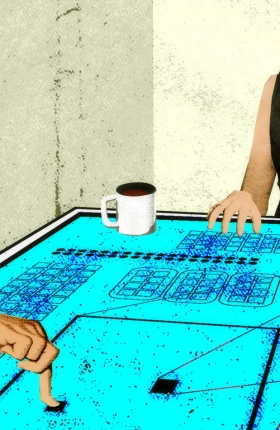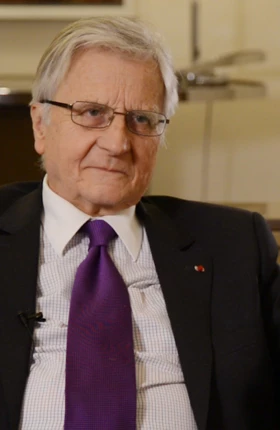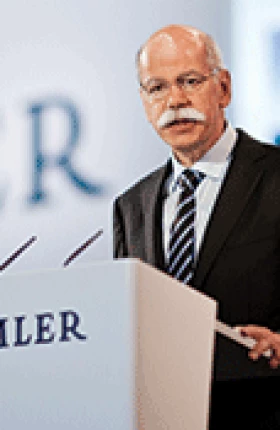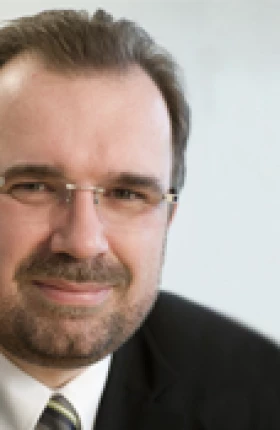Schneider Electric’s revenues are well distributed across the globe. The energy-management company generates about 30 percent of its revenues in Western Europe, 25 percent in North America, 25 percent in the Asia-Pacific region, and 20 percent in the rest of the world. CEO Jean-Pascal Tricoire boasts that about 40 percent of Schneider Electric’s revenues come from “new economies.”
This enviable balance in the business eliminates any work-life balance for Tricoire. He travels 80 percent of the time because, as he puts it, reality happens in the field—with employees and customers—and not at headquarters. Generally, Tricoire travels alone, finding that this helps build trust among local employees, who are willing to tell him the “good, the bad, and the ugly.”
Tricoire does not just travel to faraway markets—he lives in one. While Schneider Electric is headquartered near Paris, Tricoire himself is based in Hong Kong. He has, in fact, spent most of his 26-year career at Schneider Electric working and living outside France. The corporate employees of Schneider Electric are also spread around the globe, in rough proportion to the distribution of business.
A self-professed gypsy, Tricoire encourages the local Schneider Electric businesses to maintain their own specific cultures, undertake local initiatives, and develop relationships with the leading local schools—so long as they do all this while also living in accordance with Schneider Electric’s global values . Those values—which are grounded in passion, openness, straightforwardness, and effectiveness—help bind together employees from different backgrounds. Schneider Electric also encourages employee mobility, rotating workers through different regions and different parts of its countries in order to aid innovation, and creativity and enable the exchange of knowledge.
Recently, Tricoire sat down for a discussion with René Abate, a senior advisor of The Boston Consulting Group. Edited excerpts of their conversation follow.
Over your career at Schneider Electric, did you work a lot in many overseas markets?
I have been here 26 years. Time is really flying. I have spent most of the time outside of my country of origin. I believe a chief executive must face reality, and reality does not happen in corporate. Reality happens in the field, with customers and with employees. It is good to be with them all the time. It places some constraint on the way we live, but it is also the biggest pleasure of the business.
Have you had to adapt your business model and your organization to meet the needs of emerging markets? And do either of these differ from what you have in more mature markets?
They are very different. New economies, especially when they are large and have a deep industry culture, come with a different way of doing business. Today, new economies represent 40 percent of Schneider’s business. Already, we are a very significant company in the new economies—accounting for about €8 billion. If you look at our dynamics over the past ten years, our growth in the new economies is 10 percent above our growth in the mature economies.
Our culture is a culture of local empowerment and decentralization. One of the assets that we have benefited from in the new economies has been our capability to trust our local employees and local teams and give them the capability to adapt our approaches and business model. We also provide big chances and big opportunities to our local people early in their careers.
You are known to have very strong relationship with your local managers. What do you do specifically? You travel, you meet them, but do you go beyond that?
The biggest problem in large companies is that people tell you things that are not true. We all run the risk of living in an ivory tower, where people tell you what you want to hear.
At Schneider, we have a culture of straightforward, direct expression. And I want to maintain this culture. So I tend to travel alone. I do not go with other people. When I arrive at a Schneider in another country, I am with the people of the country. There is no barrier or no interpreter between the teams and myself. After a few days together and without any protection, I hope that people dare to tell me the good, the bad, and the ugly. My job is to deal with the bad and the ugly—and to help and support them to do the good.
You mentioned your global culture. Are there specificities in some countries that you accept as variations of Schneider’s global culture?
Our culture is based on local empowerment and decentralization, which means that there is a very strong component of the local culture, too. We absolutely authorize and cultivate those different cultures, whether across countries or businesses. We are also attached to values that are the links between the people of Schneider.
Our company has grown a lot in the past five or six years. We have multiplied in size, growing 2.5 times larger during this time. Half of the growth has come through acquisition. But when people join us from the outside, what strikes me is that they say, “You have a strong culture.” But that does not mean that the people of Schneider China operate the same way as the people of Schneider U.S. do. They operate with different soft skills, but they share the same values.
Our values are what keep us together. Straightforward dialogue is one of the important values that we carry together.
Can you tell me how global Schneider Electric is?
Our revenues break down to roughly 25 percent in North America, 25 percent in Asia Pacific, 30 percent in Western Europe, and 20 percent in the rest of the world. The split of our employees corresponds with the split in our business. We operate on a global scale. But we want our people to be close to the most advanced customers and the most competitive universities, so we have chosen a mode of management that puts our people very close to the markets.
In many companies today, talent is becoming a critical element of strategy: specifically, how to find talent and how to nurture it. How do you address this at Schneider Electric? Is there a difference between the mature markets and new economies? And what do you do about mobility?
We’ve always had a culture of trying to nurture talent from the inside in order to give a chance to the people who have been engaged and loyal to the company for a long time. At the same time, we introduce people with exceptional talent at higher levels in parts of the company.
Our business is also changing and moving. We are recruiting people with other competencies, so that today Schneider is a blend of people from the inside and the outside.
Is there a difference between mature economies and new economies? Frankly, at the end of the day, I would say no. We want to be the place where people who have a passion for the future of the planet—and for the technologies that solve the big, hairy problems of climate change—want to work. And they want to work with us because this is the most diverse, the most close-to-the-market, and the most equitable company in the industry. We want to be extremely attractive.
We work with universities to detect students. We have created programs like Marco Polo that give you the opportunity to work for two years outside of your country of origin straight out of the university.
We also cultivate mobility inside the business. If you are like me—a gypsy and ready to go to one place and to the other one, to bring your know-how, and to mingle with other communities—this is a very exciting place to be. We believe that mobility and diversity are big sources of innovation and creativity. That’s basically a very strong point of our company. Our customers, whether local or global, expect from Schneider the best solutions in the world. Our being global makes a lot of sense for them. They know that we can supply them with the best Japanese, U.S., or Chinese solutions wherever they are on the planet, provided that we share our knowledge and we create the network to carry that know-how to our customers. For that to happen, the best way is to make sure that we have a maximum number of people who have been exposed to mobility, who know more than one business in the company, and who know more than the capabilities of just one country within the global company.






